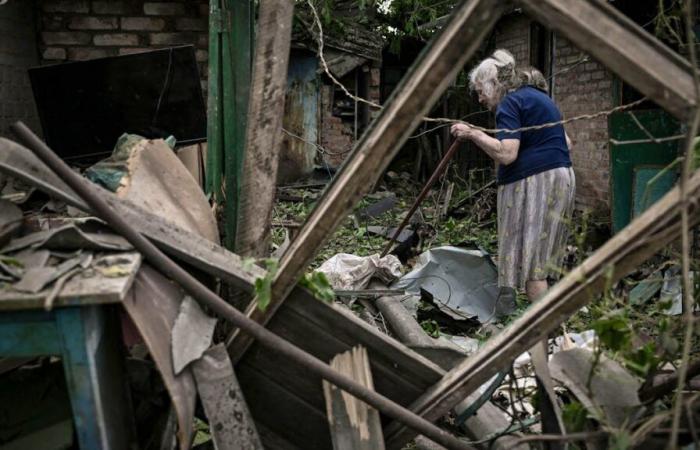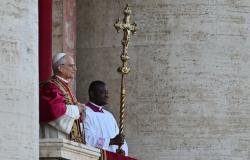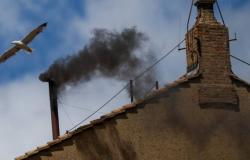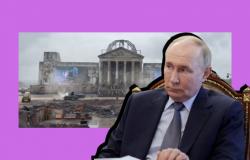A eldest, with her cat on her shoulders photographed in Droujkivka, a city in the eastern region of Donetsk.
AFP
Pressing against his car, the Ukrainian soldier Iouriï resumes his senses after seven days spent on the eastern front. There, the truce declared Thursday by Russian president Vladimir Putin has “not changed” anything, he assures.
The drones and shells “still fly”, assures this 37 -year -old soldier, crossed by AFP in Droujkivka, a city in the eastern region of Donetsk located about fifteen kilometers from the fighting.
Near him, one of his comrades with eyes reddened with fatigue shoots his cigarette, while another vacuum an energy drink. They will probably only have two days before returning to the front, time to do your mind and sleep.
The truce, unilaterally announced by Russia for the commemorations of the 80th anniversary of victory over Nazi Germany, must last until Saturday evening.
Like many, Iouriï does not believe it.
“I think that as long as we do not repel completely (the Russian army) from here, nothing will be quiet,” he said, helmet camouflage still screwed on the head.
kyiv, who has been fighting the Russian invasion for over three years, accused Moscow of continuing to attack all along the front line. Already in April, a short ceasefire during the Easter weekend had led to a drop in fighting without being fully respected by the two camps.
According to the commander of a drone unit deployed in the south and northeast, interviewed Thursday by AFP, there is “no truce”, simply “average intensity” fights.
A Thursday like the others
For many soldiers, this first day of ceasefire therefore looks like a Thursday like the others. “That night, nothing has changed, there were strikes,” says Andriï, a 50 -year -old soldier. While waiting for his cappuccino in a candy pink living room of a Kramatorsk coffee, a large city in the Donetsk region, he assures that any break announced by Russia is “nothing more than a truce on paper”.
-Others, nonchalants, hadn’t even paid attention to it. “It started?” Asks, pouffiring Laughing Serguii, a 41 -year -old soldier. On the side of civilians, the tone is similar.
In front of a Kramatorsk store, Victoria, 43, says she has “no hope” that Russia last. Maybe the day will be “a little quieter”, she slips before hurrying to join the bank where she works.
A semblance of respite
If the fighting continues, the Ukrainian cities seem to know a semblance of respite. According to the Ukrainian Air Force, “no missile shot or any use of attack drones” was reported between 9:00 pm GMT Wednesday and 05:00 GMT on Thursday, is very rare.
In Kramatorsk, the usually constant noise of air alerts was a little more discreet, without disappearing entirely. Some distant explosions, echo of the fighting, were audible by AFP journalists, but at a volume also limited.
In Droujkivka, Olena Seliverst, 41, says he is praying that the next few days are calm, because her four -year -old son is “very afraid” of explosions. Next to her, the child with a teasing look, cap with the cosmonaut logo on the head, puts the passers -by with her false plastic rifle.
He already knows how to recognize the noise of a missile, notes Olena Seliverst. “It’s scary to know that at four years old.”
A rare night without sirens
The Ukrainian capital, kyiv, has experienced a rare night without the howl of anti -alerts.
This does not prevent Ganna Filatova, a 69-year-old nurse whose son is at the front, not to believe in this brief ceasefire either. “I don’t trust Russia,” she said, saying that he wanted both “peace”, “victory” and that “this madness” ceases.
Ukraine calls for an unconditional 30-day ceasefire, advocated by US President Donald Trump, but hitherto swept by Russia, who wants concrete commitments on his requests before accepting a general fighting.
For another resident of kyiv, Anatoliï Pavlovytch, this Minitrêve will undoubtedly be the occasion for a new Russian “maneuver”. “Has Russia ever held its promises?” He asked.
(AFP)








